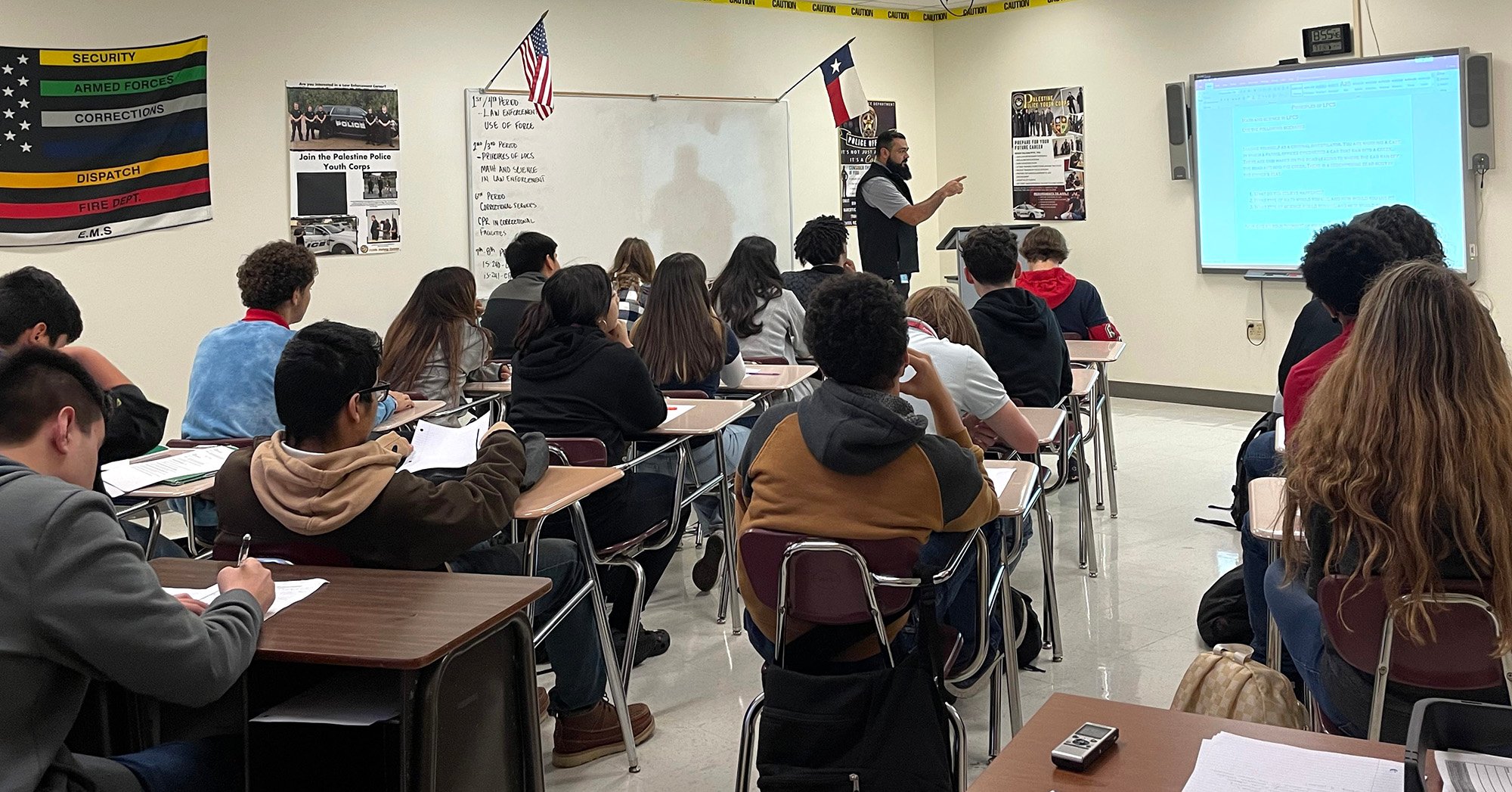
Why This Texan Won’t Be Celebrating Juneteenth This Year
Above: Chantel L. Jones
Recently, I had a very pleasant retail experience. A nice woman picked up on the second ring, greeted me courteously and walked me through how to navigate the company’s online catalog. I could choose the solid oak “Constitutional chair” with a gold Texas state seal for $350. The leather swivel “judge’s chair” would run $550. Or I could buy jail pants, with elastic waistband and optional stenciling—“County Jail,” for example—for $75.
But this is no ordinary company. A division of the Texas Department of Criminal Justice, Texas Correctional Industries uses prison labor to manufacture goods and provide services to government customers. TCI does over $70 million in sales each year. State officials argue that using prisoners as labor helps to cut state costs and provides them with invaluable work training. However, what good are those workforce skills when employers won’t hire former prisoners because of their incarceration record? Most TCI workers aren’t paid. Prisoners work for little to nothing while the correctional system is profiting off their labor. That sounds a lot like slavery to me.
With Juneteenth approaching, now’s a good time to consider the living legacy of slavery in our state. Juneteenth, or June 19th on the calendar, is a celebration commemorating the June 1865 announcement of the abolition of slavery in Texas. A few months later, the 13th Amendment to the U.S. Constitution abolished slavery and indentured servitude “except as a punishment for crime.” That exception for crime was not a mistake. Texas and other states have exploited this loophole egregiously, incarcerating African-American men and women at scandalous rates, often profiting their labor. I believe Juneteenth cannot be celebrated fully. Freedom has yet to reach the staggering numbers of African-American men and women who are currently incarcerated and generating revenue for the state of Texas.
Right now there are festivities being planned across the state to acknowledge the freedom of African-American Texans. The truth is, I really want to join in on the fun, but we have a lot of work to do before we can truly earn the right to celebrate.
Blacks make up 12 percent of the state, yet compose 32 percent of the prison population.
The incarceration rate in Texas per 100,000 people in 2010 was 2,855 for African Americans and only 768 for Anglos. While whites are are 45 percent of the Texas population, they only represent 33 percent of the prison population. Blacks make up 12 percent of the state, yet compose 32 percent of the prison population. The ACLU reported that in 2010 Texas was the second in the nation for marijuana possession arrests. While black and white Texans use marijuana at roughly the same rates, African Americans were 2.3 times more likely to be arrested for marijuana possession.
There are some bright spots in this sad picture. In February, Texas Sen. John Cornyn co-sponsored a modest prison reform bill in Congress aimed at reducing the number of people incarcerated in federal prisons. It would also bolster programs that help prevent inmates from returning to prison after they are released.
But there is so much more that must be done. Texas slaves didn’t learn of the Emancipation Proclamation for two-and-a-half years after it was issued, and 150 years later the legacy of slavery still endures in our criminal justice system. Please consider supporting organizations, such as the ACLU of Texas, that are working to abolish mass incarceration of African Americans who remain “slaves” to the system. Let’s give them the support they need to be successful. That would be a Juneteenth worth celebrating.


